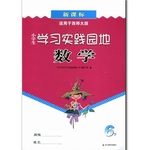题目内容
_________ is no use regretting what you have done.
A. This B. That C. It D. What
C

 仁爱英语同步练习册系列答案
仁爱英语同步练习册系列答案 学习实践园地系列答案
学习实践园地系列答案Plants have family values, too; it seems, with new research suggesting they can recognize close relatives in order to work together.
An ability to tell family from strangers is well known in animals, allowing them to cooperate and share resources, but plants may possess similar social skills, scientists believe.
Susan Dudley and Amanda File of McMaster University in Ontario, Canada, report they have demonstrated for the first time that plants can recognize their kin.
This suggests that plants, though lacking recognition and memory, are capable of complex social interactions.
“Plants have this kind of hidden but complicated social life,” Dudley said.
The study found plants from the same species of beach-dwelling wildflower grew aggressively alongside unrelated neighbors but were less competitive when they shared soil with their families.
Sea rocket, a North American species, showed stronger and healthier root growth when planted in pots with strangers than when raised with relatives from the same maternal(母系的) family, the study found.
This is an example of kin selection, a behavior common in animals in which closely related individuals take a group approach to succeeding in their environment, the researchers said.
Kin selection also applies to competition, because if family members compete less with each other, the group will do better overall. “Everywhere you look, plants are growing right up next to other plants,” Dudley said,“ Usually it’s a case of each plant for itself. But sometimes those plants are related, and there are benefits to not wasting resources on being competitive, and there is not really a cost to not being competitive as long as your neighbor is also not being competitive.”
Learning and memory appear to be important for kin recognition in animals, but this isn’t an option for plants, she noted.
Some researchers speculate(猜测) that plants communicate through their roots, identifying themselves using tiny chemical signatures specific to each plant’s family.
【小题1】What’s the main idea of the message?
| A.Studies find plants can recognize, communicate with relatives. |
| B.Kin selection is important for plants. |
| C.Animals can recognize and memorize their relatives. |
| D.Competition asks plants to recognize their relatives. |
| A.Animals can recognize and memorize their relatives. |
| B.Animals’ social skill is to cooperate and share resources. |
| C.Animals’ social skill can recognize close relatives in order to work together. |
| D.Animals’ social skill is no use at all. |
| A.grow well | B.compete with other kinds of plants |
| C.strengthen the relationship among siblings | D.find which one is the best |
| A.sea rocket is a South American species |
| B.sea rocket grows aggressively alongside unrelated neighbors |
| C.sea rocket grows aggressively alongside its siblings |
| D.sea rocket is a kind of bush without flowers |
| A.Plants communicate by using tiny chemical signatures specific to each plant’s family. |
| B.Plants communicate with each other through their roots. |
| C.Plants communicate with each other by their leaves. |
| D.Plants communicate with each other with their flowers. |
Who Owns the Moon?
Within the next ten years, the U. S., China, Israel, and a crowd of private companies plan to set up camp on the moon. So if and when they plant a flag, does that give them property rights?
A NASA working group hosted a discussion this week to ask: Who owns the moon? The answer, of course, is no use. The Outer Space Treaty, the international signed by more than 100 countries, states that the moon and other celestial bodies (天体) are the province of all mankind. No doubt that would annoy all of the people throughout the ages, like monks from the Middle Ages, who have tried to claim the moon was theirs.
But ownership is different from property rights. People who rent apartments, for example, don’t own where they live, but they still hold rights. So with all of the upcoming missions (派遣团) to visit the moon and beyond, space industry thought leaders are seriously asking themselves how to deal with a potential land rush.
“ This is a very relevant discussion right now. We’ve got this wave of new lunar missions from around the world,” said William Marshall, a scientist in the small-spacecraft office at NASA, but who spoke this week at an event hosted by NASA’s Co Lab, a collaborative(协力完成的) public-private working group. He was speaking from his personal interest and not on behalf of the agency.
To be sure, the United States aims to send astronauts back to the moon by as early as 2015, in a mission that would include a long-term settlement. China and Israel, among others, are also working on lunar projects. And for the first time, several private groups are building spacecraft to land on the moon in an attempt to win millions of dollars in the Google Lunar X Prize. Some participants say that they plan to gain some property rights in the mission.
【小题1】In the passage the writer seems to be worrying that ________.
| A.the US will live on the moon forever |
| B.the moon will not be able to hold all mankind |
| C.the potential land rush will become more and more frequent |
| D.no one can answer the question “ Who owns the moon?” |
| A.encourage private groups to land on the moon |
| B.help NASA host a discussion about land rush on the moon |
| C.help some developing countries to complete their lunar projects |
| D.reward some countries or private groups which haven’t stepped on the moon |
| A.the Outer Space Treaty |
| B.if and when they plant a flag |
| C.the NASA working group |
| D.monks from the Middle Ages |
| A.The U. S. astronauts will live on the moon for longer time. |
| B.Many countries and private groups plan to go to the moon. |
| C.Why some private groups wish to land on the moon. |
| D.It is easy to gain some property rights on the moon. |
| A.it’s a waste of time to work on the lunar project |
| B.“ The Outer Space Treaty” forbids private groups to land on the moon |
| C.all mankind has the right to land on the moon |
| D.whenever you come to the moon, you’ll get some property rights on it |